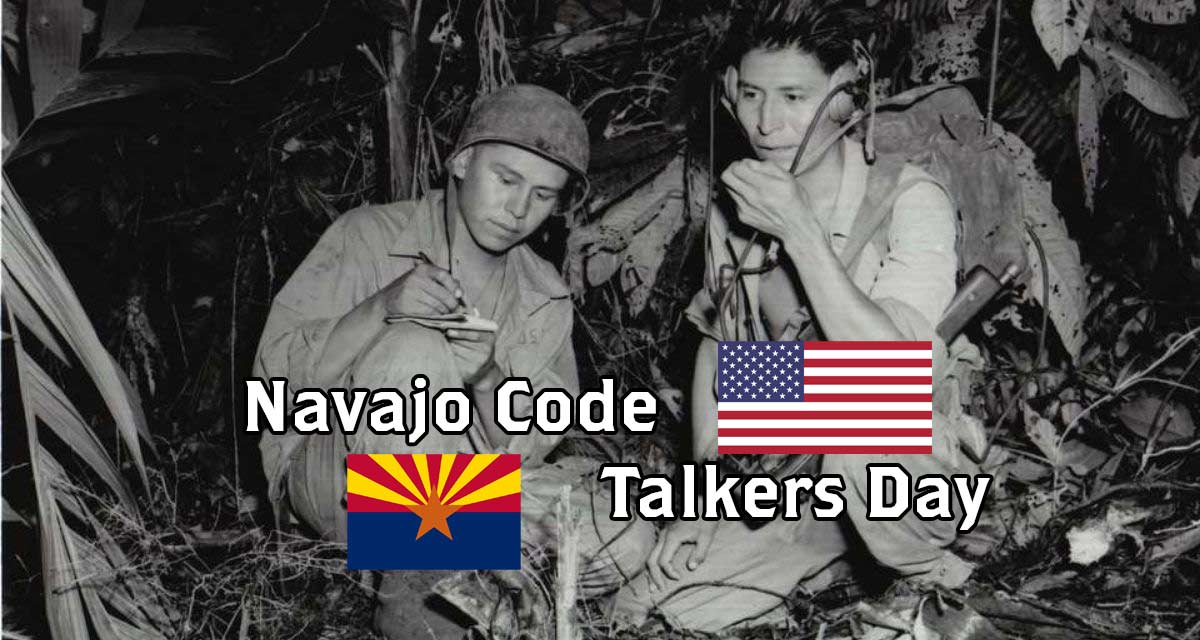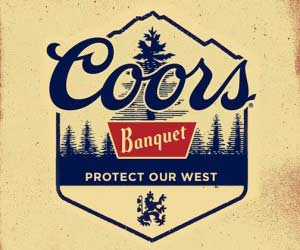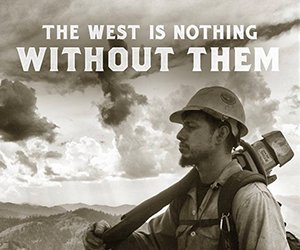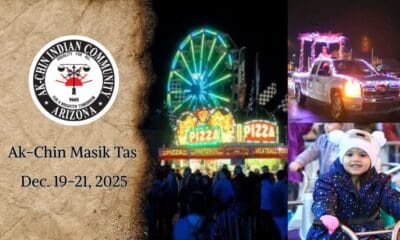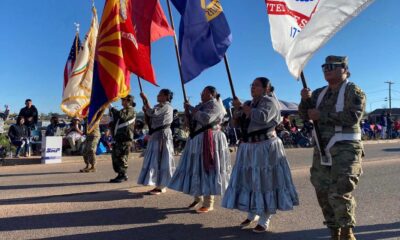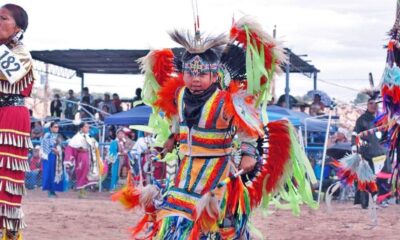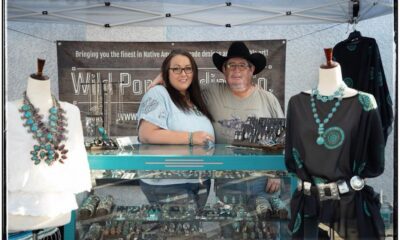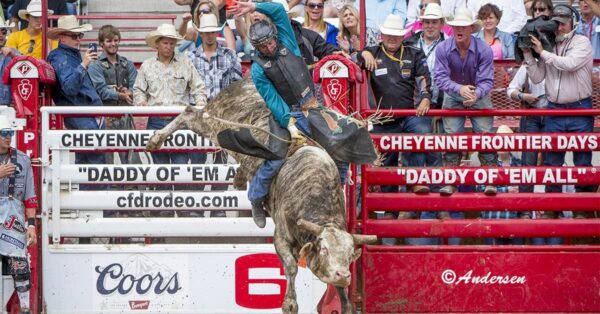Back in 1982, President Ronald Reagan established a presidential proclamation that stated August 14th would be the National day to recognize Navajo Code Talkers and their immense contribution to the success of World War II. Our home state of Arizona has decided to take it further and also recognize August 14th, Navajo Code Talkers Day within the state.
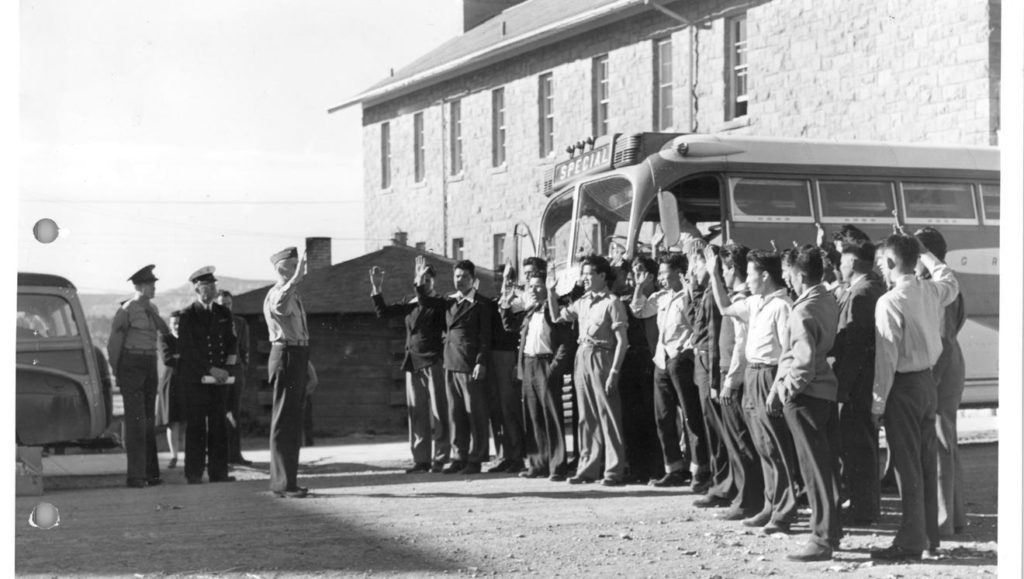
The initial legislation for the state holiday was brought to fruition by Peshlakai, the Senator for Window Rock, in February. That next Monday, she announced on her Twitter that it was her first bill to be signed into law. Here are her thoughts,
“It’s important that all Arizonans remember the service and bravery of the Navajo Code Talkers,” Peshlakai said. “Their crucial service during WWII will not be forgotten, and we will continue to honor them every August 14th.”
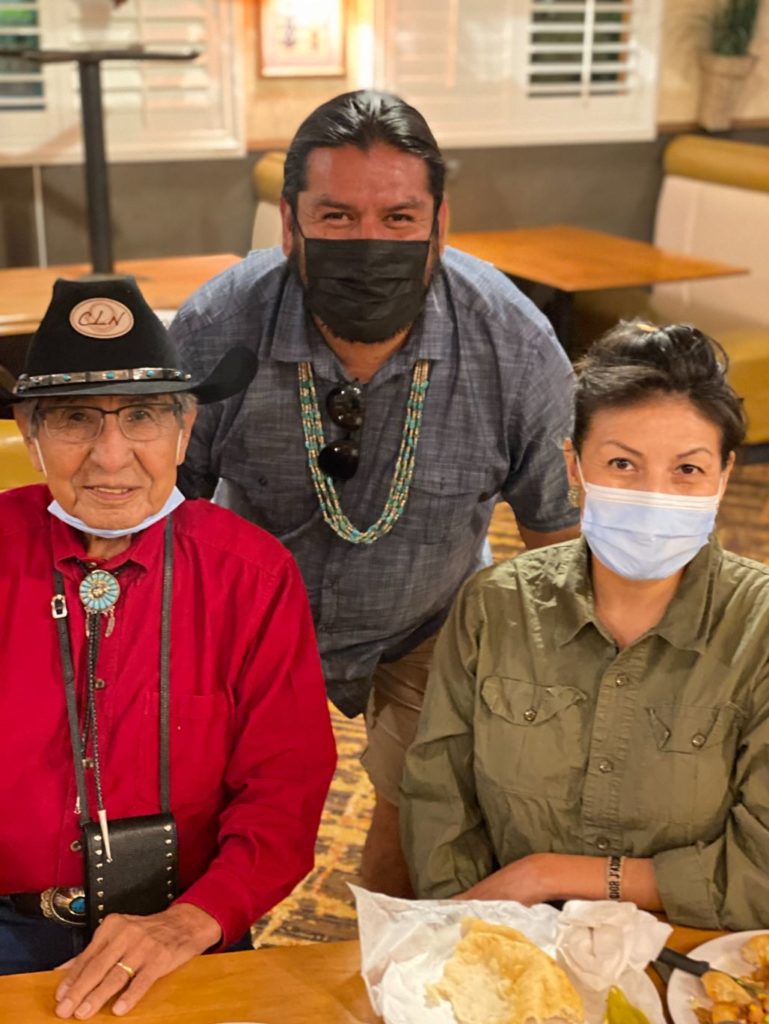
Having this day as a remembrance serves as a reminder that life and traditions are fragile. While there are very few Code Talkers still with us today, it’s important that we learn about our history and honor those that made the ultimate sacrifice. The life that these men endured is something that most cannot even fathom going through these days.
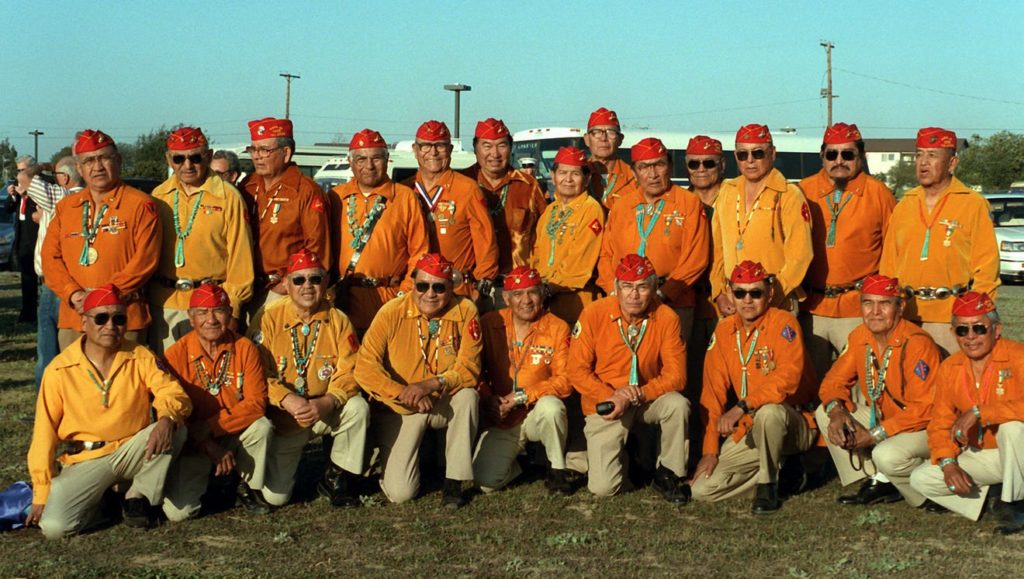
About the Navajo Code Talkers
As generations keeping growing farther and farther away from history, it’s more important than ever to recognize how we got to where we are today. And truthfully, our country would not be what it is today without the valiant efforts of the Navajo Code Talkers. Some of you reading this might be familiar with the term, but if you aren’t here is a quick snapshot before we dive in. A “code talker” is a name that was given to American Indians who used their tribal language to send encrypted messages on the battlefield but their importance stretches far beyond this simple terminology.
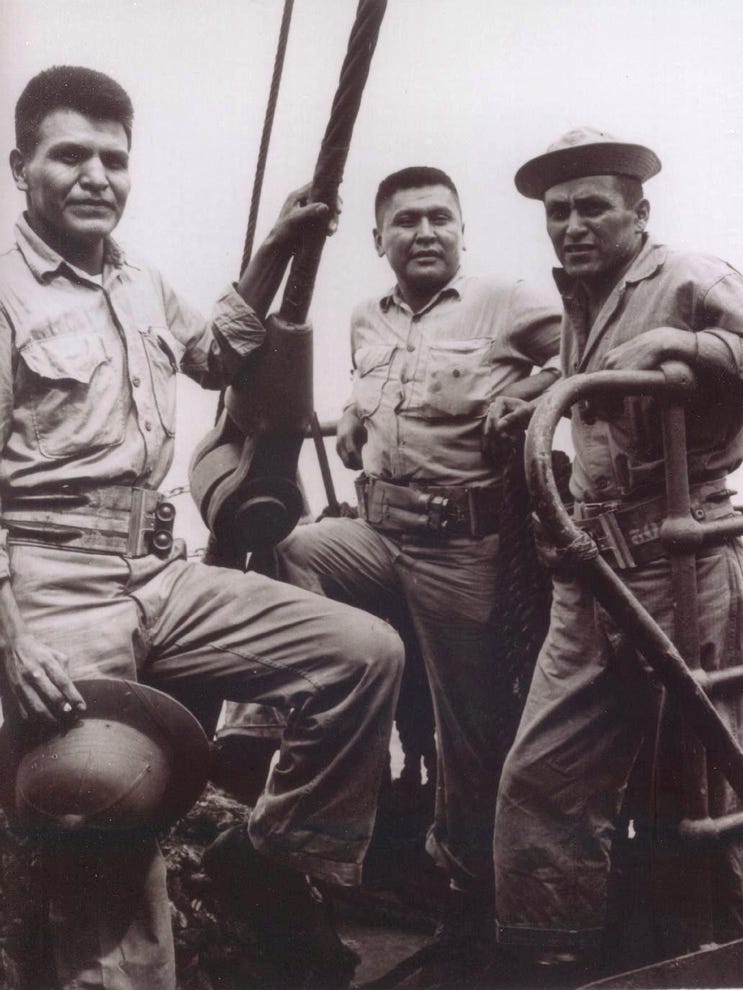
In addition to the Navajo (Diné) code talkers, there were at least fourteen other Native nations, including the Cherokee and Comanche, that served as code talkers as well in both the Pacific and Europe during World War II. The idea of code talking came from Philip Johnston, a civil engineer from Los Angeles who was raised on the Navajo Reservation. Originally born in Kansas, Johnston was raised speaking Navajo. Philip originally served in France during World War I but by the time World War II hit, Johnston was too old to fight but wanted to continue serving his country. The idea came to him when he was reading about military security and he realized that the military could theoretically create a secret code based on the Navajo language. This was only the beginning of the Navajo Code Talkers, after the ideas were born, 29 Navajo Code Talkers were brought in to create it and the rest of it is truly history. If you’d like to read the full story, you can do that here.
Last Updated on 08/17/2021 by Krysta Paffrath
CLN Community Sponsor
